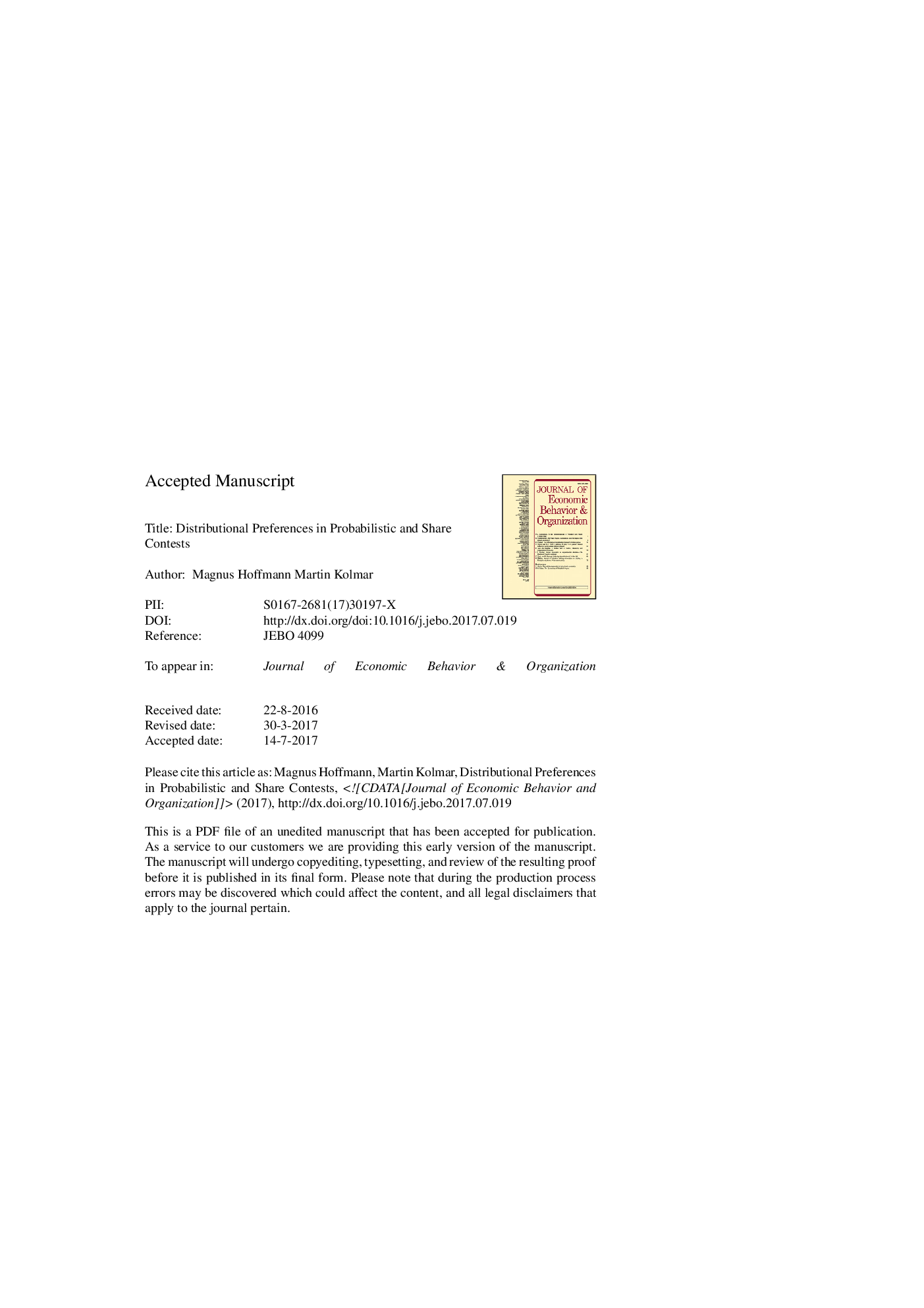ترجمه فارسی عنوان مقاله
ترجیحات توزیعی در مسابقات احتمالاتی و به اشتراک گذاری
عنوان انگلیسی
Distributional preferences in probabilistic and share contests
| کد مقاله | سال انتشار | تعداد صفحات مقاله انگلیسی |
|---|---|---|
| 114037 | 2017 | 29 صفحه PDF |
منبع

Publisher : Elsevier - Science Direct (الزویر - ساینس دایرکت)
Journal : Journal of Economic Behavior & Organization, Volume 142, October 2017, Pages 120-139

